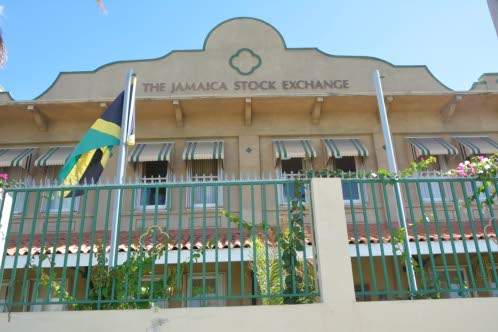With the depression of savings accounts in banks and the horrendous fees that banks charge to keep people’s money, Jamaicans must find alternate ways of making and saving money. I know that this is easier said than done, given the fact that many Jamaicans have been locked out of what is still a closed financial system. If the Government is serious about the new buzz terms of financial inclusion and its cognate economic independence, creative ways have got to be found to get people the information they need to participate.
There should indeed be a drive for national economic independence, but the economic independence of the ordinary Jamaican must not be overlooked. I believe that the Jamaica Stock Exchange (JSE) can play a crucial role in this respect. This important Jamaican institution has come a far way. Under the leadership of the indefatigable chairman, Marlene Street Forrest, the exchange has been taken to new heights of financial sophistication. The respectability that it has garnered has been observed globally by the exchange being recognised as the leading one in 2016 and in the top 10 in 2017. This was no mean achievement for a small stock exchange coming from a Third World country.
There is no doubt also that the Jamaican financial community has become more sophisticated and integrated than hitherto existed. Financial analysts from the leading financial houses keep abreast and are quite knowledgeable of what is taking place in the global financial community. Many of them can match and even exceed their counterparts on Wall Street in their real-time analysis of financial news. Jamaica is well placed as the region’s leading financial hub, notwithstanding the vagaries of a still-elusive, robust economic growth agenda.
When we talk about financial inclusion we are addressing the extent to which the ordinary person is able to participate in planting, nurturing and reaping the fruits of a growing economy. We are talking about removing the barriers against their participation — many of which have been wittingly and unwittingly set up by regulations and governmental policy that have excluded them. For example, the difficulty of getting people their titles for land has been a sore one. Yet, everyone is agreed that one of the most prized possessions that any one, including the so-called small person, could have is to hold a title to a piece of land with their own name on it.
It is just recently that the Opposition and the Government seem seized of the urgency to vigorously pursue the land-titling process. This must be encouraged and become more relentless. This could be one of the most important areas of financial inclusion for the great majority of Jamaicans. And people’s ability to so participate must not be underestimated in this regard. I have first-hand knowledge of the drive and motivation that the ordinary Jamaican has when presented with the possibility of owning a piece of land. If there is anything else they save for and prize, it is land ownership and getting their children a good education. The two are not mutually exclusive either.
Another area in which they are being left out is the perennial problem of exclusion from bank financing. The lack of collateral buttressed by the absence of a title is significant here. Banks talk a good talk, but they are very slow in opening themselves to the participation of many Jamaicans in building a life of economic independence for themselves and their families. It is perhaps more in this area than any other that the banks are underserving the country. Not only do they pay them paltry returns on their savings, but the lucky — or, perhaps, unlucky — few who get into the loan system do so at a tremendous cost as loan rates far exceed what the banks will pay on their deposits. Many cannot afford the exorbitant rates. When it comes to loans many Jamaicans see the banks as Shylocks to be avoided at all costs.
How helpful is the JSE in furthering financial inclusion in Jamaica? What about the brokerage houses that operate in the country? The number of Jamaicans who have stock brokerage accounts is very minuscule. It is true that there is indirect participation through pension plans and investment portfolios with financial institutions, but how many know that they can open, operate and manage a stock brokerage account? Who, indeed, is a stockbroker to them? It is certainly not just the responsibility of the JSE to get people engaged. The blame for the lack of knowledge must also be placed squarely at the feet of the brokerage houses.
http://www.jamaicaobserver.com/opinion/financial-inclusion-and-the-jamaica-stock-exchange_133862




Leave A Comment